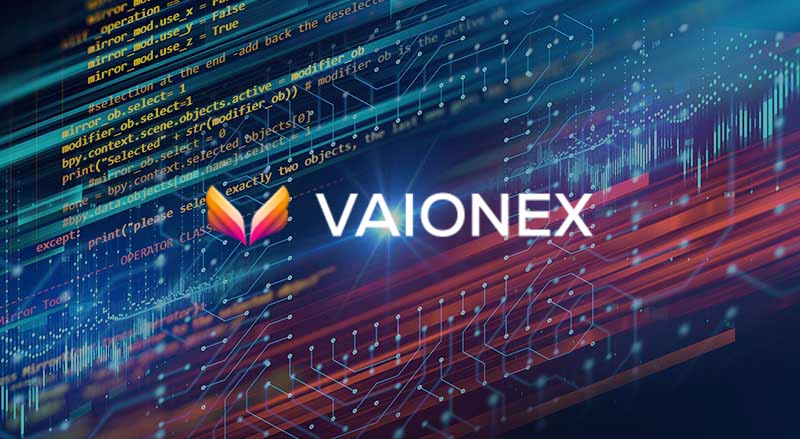At the recent my2cents Developer Conference in Istanbul Robin Gounder (née Kohze), Founder and CEO of Vaionex, held a presentation on the challenge of distinguishing reality from the artificial (or fake) with blockchain.
Gounder opened his presentation by referring to the growing problem of differentiating between what’s real and what’s artificial. This includes images, speech recordings and videos and all kinds of data that can be faked. He noted that Artificial Intelligence (AI) and machine learning are progressing rapidly, creating many use cases and benefits. But the damage that deep fakes and other forgeries can inflict is so great that authenticating genuine data has become an urgent problem.
One example of this is in LinkedIn profiles, where it’s possible to create a profile with all the details, including job history. However, it’s becoming harder to tell whether the information is real or fake, which can have a significant impact on job opportunities.
As a result, employers are increasingly taking measures to verify the authenticity of records to ensure that they are making informed decisions. Even the traditional method of checking CVS is becoming less accurate as more people are creating fraudulent records. Blockchain technology, with its immutable and secure ledger, provides a reliable and trustworthy solution to this issue.
Verification through an immutable ledger
Blockchain technology may be the solution to combat becoming a society where we can no longer tell what is fake and what is real. Blockchain is a distibuted, secure digital ledger that can be used to record transactions and store data securely.
It can provide a transparent and tamper-proof system, where we can be confident that the information is authentic and not manipulated, thanks to the timestamp feature that indicates when a record was created. This feature is particularly important when it comes to verifying a chain of events, such as travel records or academic records.
In theory, blockchain has long offered itself as a solution to this problem. But in practice, it has been proven that some of the best-known blockchains are not suitable as a solution to this problem. Gounder highlighted the lack of scalability of many popular blockchains.
Billions of transactions per second required
Gounder points out that a universally accepted blockchain, that serves as a global source of truth, needs to handle a vast number of interactions. In his estimation, a blockchain that can handle a billion transactions a second is required. This number exceeds not only the current capacities of the biggest blockchains like Ethereum, Solana etc but also their theoretical maximums. However, this does not apply to the BSV blockchain, which scales unbounded.
The BSV blockchain has already scaled up significantly from its initial two-megabyte blocks to an average of 200 megabytes, with some days reaching 40 million transactions. Gounder notes that there is no inherent limit to scaling up the blockchain to handle the necessary volume of transactions. In the future, BSV blockchain will achieve a much higher transaction throughput, he said.
A lack of knowledge, dissemination and access
It is one thing to have a scalable solution but another is to make the knowledge of the solution more widespread and accessible to entrepreneurs and developers. Gounder noted that there are currently three different types of blockchain users:
- Entrepreneurs – who want to have something built on existing infrastructure;
- Developers – who want to implement quick and practical solutions through an API;
- Learners – who want to build everything from scratch to understand BSV.
Gounder said that his company Vaionex offers something for all three types of blockchain users through its products. One of which is a transpiler, that translates code from the popular smart contract language Solidity into sCrypt.
Relysia – everything blockchain builders need
Gounder also highlighted Relysia, the flagship product of Vaionex. Relysia is a platform that provides simple endpoints for developers to integrate blockchain without having to learn it from scratch. It offers a range of services, including creating a wallet, creating a token, sending a token, and uploading a file to the blockchain.
Kohze noted that the platform is user-friendly and has a low threshold for getting started, enabling users to create their own tokens and send them away within just a few minutes. Relysia has already been adopted by around 20 BSV applications, and the platform offers a free account that allows users to send up to 300,000 transactions for free.
